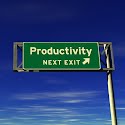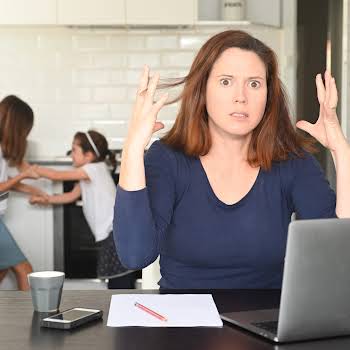
By IMAGE
01st Sep 2014
01st Sep 2014
Whether you work part-time or full-time, you spend the bulk of your weekdays at work? Can the job be done in fewer hours though? Can less really be more?
It’s 2014, we’re just recovering from a long and debilitating recession, and most of us are congratulating ourselves on having survived the downturn with our employment intact and our finances shaky, but still there. Did this mean that we put in even more hours? Are we concerned about our work-life balance? Should we opt for the lean-in, work-life merge approach to ensure that we remain competitive and – you know – employed? Some of us say ?yes?, because we don’t know it can be different. Some of us say ?no?, and it seems we might get what we wish for.
So, yes, it is 2014 and we do need to make ourselves stand out at work, but, while we’re not advocating slacking on your job, according to recent studies and countless employee surveys around the world, a happy employee is someone who works hard but appreciates job flexibility, and going home at a regular time so he can be with loved ones, family and friends for more than the two or so hours we usually get before crashing for the night.
So where does the science community stand on this? Authors of recent studies in the States and Europe seem to generally agree that more flexibility and reduced hours can in fact increase efficiency and boost productivity. Claims made by the?New Economics Foundation (NEF), a prominent UK think tank, say?workers should?aim for a flexible 30-hour week or less. This, they argue, would benefit everybody involved: less tired, more productive employees; happier, more competitive employers, and? a healthier planet thanks to decreased carbon emissions caused by intensive commuting. ?We must rethink the way we divide up our hours between paid and unpaid activities, and make sure everyone has a fair share of free time,” says NEF’s Head of Social Policy, Anna Coote. Does this sound too good to be true? In the age of the knowledge economies, this is definitely in the realm of the possible.
Embracing the advances of technology that allow working from home or remotely for at least some of the time means that workers can be less expensive while being more productive. Even though some argue these new teleworking tools cause a social disconnect, getting the commute out of the way and consequently spending more time doing the things you love – with the people you love – means this may be the way to go. These are some of the arguments found in The Activity Illusion: Why We Live to Work in the 21st Century and How to Work to Live Instead. In a recent BBC 4 interview, its author, a former corporate leader, said, ?We’re reassured often by people working very long hours but rarely question their productivity or impact? If attitudes changed and we didn’t treat people as if they were still factory hands or labourers, when more time meant more output, I think we would get more out of our employees and there would be a bonus in terms of life satisfaction and wellbeing as well.? It’s still early days, says The New York Times, but industry leaders and policy-makers are taking notice.

If you haven’t heard of the Swedish six-hour working day, this is a recent?experiment by the Gothenburg City Council to implement reduced working hours on the same level pay, similar to systems already in place in the Netherlands and Belgium. We already know that Swedes demonstrate a higher level of work satisfaction and general life happiness, despite experiencing similar weather and darker, longer winters than their Irish counterparts. So what makes them so good at the work-life balance thing? Not the vitamin D, that’s for sure. Part of the explanation is that they see their education and the available technology as a means to making their work easier, and shorter hours as a way of boosting?productivity while working less. Not without its detractors, the experiment has already shown short-term benefits, such as fewer sick days and greater?efficiency.
Nowadays, in the era of Big Data, corporate productivity managers concentrate on optimising workflows to make sure their employees use their working hours in the most efficient way, and that the company is getting the most out of its human resources without extending working hours. The direct link between the number of working hours and the rate of?output (read ‘results?) is quickly becoming obsolete, and this is not a novel idea either. Early 20th century thinkers and economists were already extolling the virtues of working less – see Bertrand Russell’s??In Praise of Idleness? and John Maynard Keynes’ (the father of modern economics)??Economic Possibilities for our Grandchildren?. Could they have been right all along? Perhaps.
Recent large-scale economic developments seem to show that working reduced hours does not mean the end of productivity or poorer workers. This makes the case of America, with its long hours and two weeks’ holidays a year, really interesting, and Yahoo’s work-from-home ban perplexing. But the Americans too are easing up on their work fetish; according to this recent CNN survey, workers prefer more free time, and employers are slowly copping on, even though the perfect work-life algorithm is still some time away.
Do you see Ireland adopting the short-working-hours trend across the board? This country does seem to have a balanced approach to work, taking second place in terms of average weekly number of hours after Denmark (below left), so the good news is that we live in a country that appreciates its workers. But could it learn to be more productive, seeing that, while in the top five most productive countries in Europe (below right), it lags behind two countries where people are known to work significantly less – the Netherlands, home to the four-day working week and the greatest number of part-time workers in Europe, and France, the country of the infamous 35-hour week.

So what is the solution? No one has the perfect one, and people should really make the life choices that make them happiest and work best for their lifestyle. But there is a lesson to be learned from working mums: the busiest and most frazzled creatures that walk the earth, unless you are a Dutch supermum. Working mothers – not the best-loved type of workers in Ireland – know that the minute we’re back at work after maternity leave, we find ourselves suddenly busier but also way more productive. It’s not rocket science: intense focus, multi-tasking, better organisation and a need for shorter hours are the things that increase in situ efficiency and improve overall time-management skills. Having experienced job flexibility, reduced hours, remote online work and control of my working hours in a pretty demanding role as the working mum of an infant, I witnessed a total transformation of my working style and newly found energy resources that came from the realisation (and sometimes desperation) of working two jobs: the office one and the one at home. Being a content worker also makes you a happier and better parent, according to UNICEF, and while it is not suitable for traditional, on-call, customer-facing professions, in today’s age of connectivity, flexible and reduced hours should be a given, and it’s worth finding new ways to work and make all of our lives easier and richer in the process.

Over to you! Can you imagine having the same output in fewer hours? Would you accept less money in exchange for reduced hours? Does your employer have a flexible working-hours policy? We’d love to hear your opinions on our Facebook and Twitter!




























